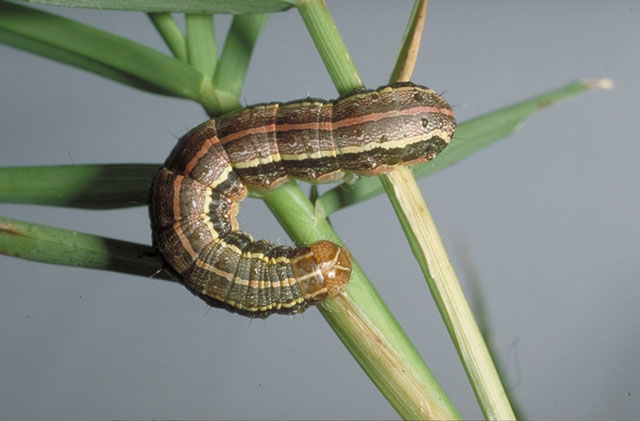
The Sunday News

Munyaradzi Musiiwa, Midlands Correspondent
MIDLANDS Province has been hit by an outbreak of armyworm which is ravaging the crop amid reports that there is a shortage of insecticide to control the pests.
Most farmers have resorted to using washing powder to kill the insect which is threatening to derail efforts of the province to attain optimum yields.
The fall armyworm, Spodoptera frugiperda, is a prime noctuid pest of maize on the American continents where it has remained confined despite occasional interceptions by European quarantine services in recent years.
The pest has become a new invasive species in West and Central Africa where outbreaks were recorded for the first time in early 2016. It is suspected that fall armyworm came from Central African countries when the country imported maize following the El Nino induced drought.
Minister of State for Midlands Provincial Affairs, Cde Jason Machaya said most farmers in the province particularly in Kwekwe were being affected by the insect.
“Since the beginning of this year we have been grappling with fall armyworm as a province.
The most affected areas are Kwekwe, Shurugwi and Gweru. The insect is seriously affecting the crop and our fear is that it might affect our yield,” he said.
Agriculture Mechanisation and Irrigation Development Deputy Minister Davis Marapira confirmed that there have been reports of outbreaks of fall armyworm in Midlands, Matabeleland North and South provinces.
“We have had several reports of fall armyworm in Midlands, Matabeleland North and South provinces. Usually we say it the responsibility of a farmer to look for pesticides and spray their crops. The insect is different from armyworm which spreads like locust destroying crop. The only challenge with fall armyworm is its high breeding rate. It is a possibility that the insect came with maize that we imported from other countries but we have not proved that,” he said.
Deputy Minister Marapira said most farmers were overlooking the effects of weeds which could destroy about 70 percent of crop.
“We are urging farmers to take weeds seriously because if neglected they can destroy 70 percent of their crop. Most farmers were overlooking that because there have been incessant rains that precipitated the growth of weeds,” he said.



